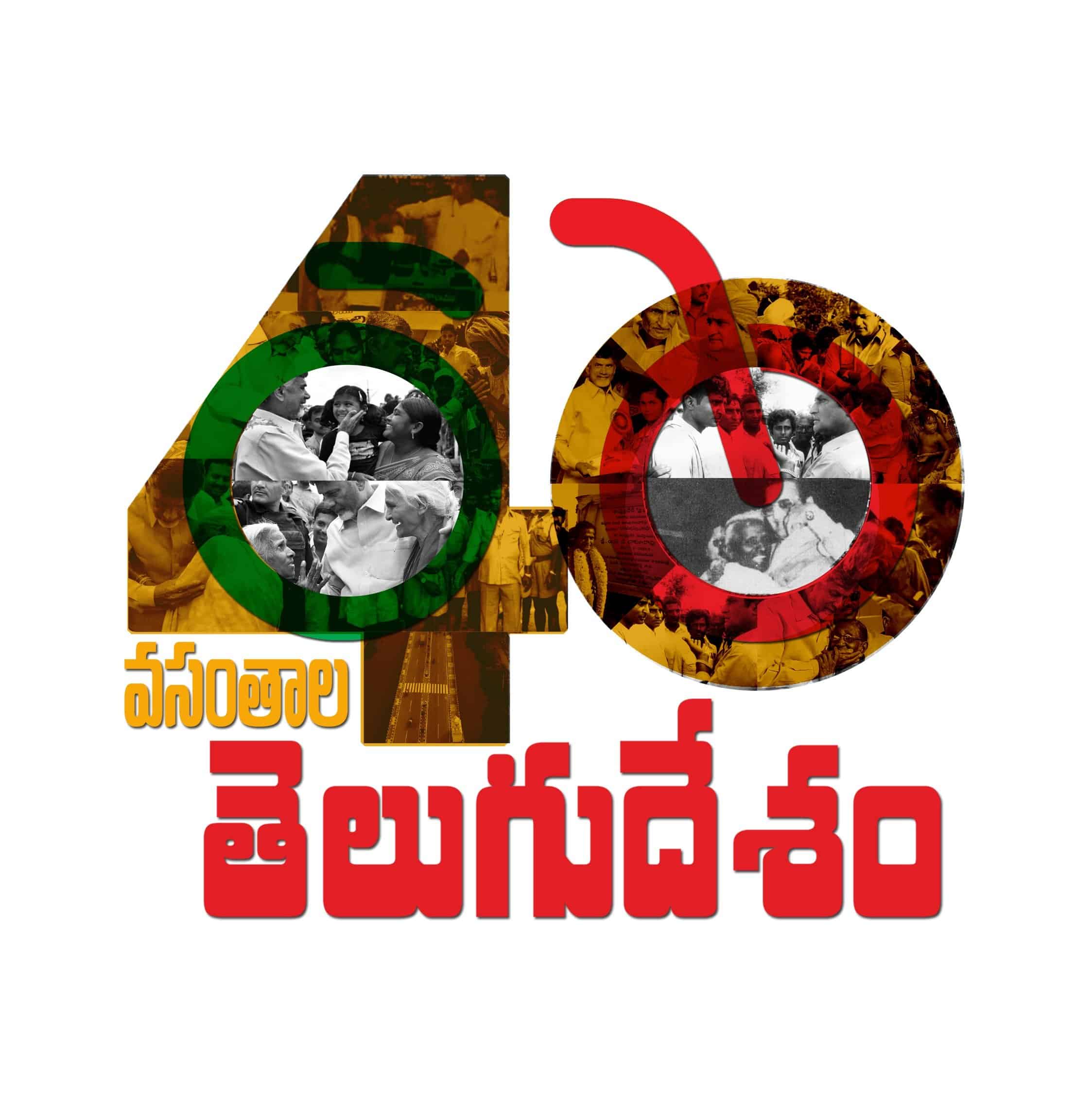The Telugu Desam Party (TDP) has come a full circle on its 40th anniversary. The party launched by yesteryear film actor N.T. Rama Rao on March 29, 1982, rose to power within nine months and NTR became the chief minister in January 1983.
TDP was formed not with any political interests but to protect the self-respect of Telugus. It is the first non-Congress party voted to power after 1956. The major reform taken up by the TDP was the introduction of the mandal parishad system in May 1985. It was aimed at decentralization of power and modernization of administration, as part of which Talukas were divided into mandals.
TDP is the first regional party in India to prove that it could play a prominent role in the national politics. TDP president and former Chief Minister N. Chandrababu Naidu played a major role in uniting the non-BJP and non-Congress forces for the United Front after the 1996 elections.
Several regional parties like the Janata Dal, Samajwadi party, DMK, TDP, AGP and others formed a 13-party United Front. This coalition formed two government at the Centre between 1996 and 1998. Naidu was the convener of the United Front.
It was the TDP which gave voice to the BCs and plum posts in the legislative houses. The party could see the BCs as the neglected community in the society and gave them the most needed uplift.
After taking the charge of the party, Chandrababu Naidu had been instrumental in promoting the IT industry in the state. It was Naidu who brought in heavy investments from the IT firms abroad and facilitated setting up their offices in Hyderabad. Later, he provided the necessary ecosystem for the smooth functioning of these firms by improving other allied sectors like the hospitality and road and air connectivity too.
It was Naidu who considered development of the state as a poll plank and contested the elections while the TDP patriarch focused on welfare and made the state bankrupt. However, the TDP’s Rs 2 per kg rice had become popular so much so that even YSR too revived the scheme under his rule. It was the TDP which emphasized the need for creating wealth for utilising in the development process.
Naidu also encouraged women form self-help groups as it would lead to women empowerment in rural areas. He fostered the Dwcra scheme through interest-free loans.
Initially, TDP opposed the formation of separate Telangana but eventually, it had to accede to the people’s demand. In 2014, Naidu was voted to power as the first CM of divided Andhra Pradesh and he took the initiative to urge farmers give their land for the development of the state capital, Amaravati. He tried to make the capital city a reality through land pooling, a concept which was appreciated by many.
In Telangana, the TDP began losing ground following the TRS’ vicious campaign that the TDP is an Andhra party and that its boss opposed separate Telangana. The TRS pushed the TDP to oblivion in Telangana.
In Andhra Pradesh also, the people did not believe in his words of building the capital with international standards ahead of the 2019 elections. The TDP faced a humiliating defeat in the hands of the YCP, whose boss urged the people to give him ‘one chance’.
Many TDP leaders switched their loyalty to the YSR Congress given the huge mandate with which the party won the 2019 elections.
Having survived facing many troubles and tribulations, the party @40 years has reached to its initial days with just a hand full of seniors still remaining loyal to the party. Many of the seniors have joined the party following NTR’s call to get together and serve the people.
The TDP bosses need to rethink and reinvent themselves to make themselves relevant and get the ‘connect’ with the public.
 Gulte Movie News And Politics
Gulte Movie News And Politics

















